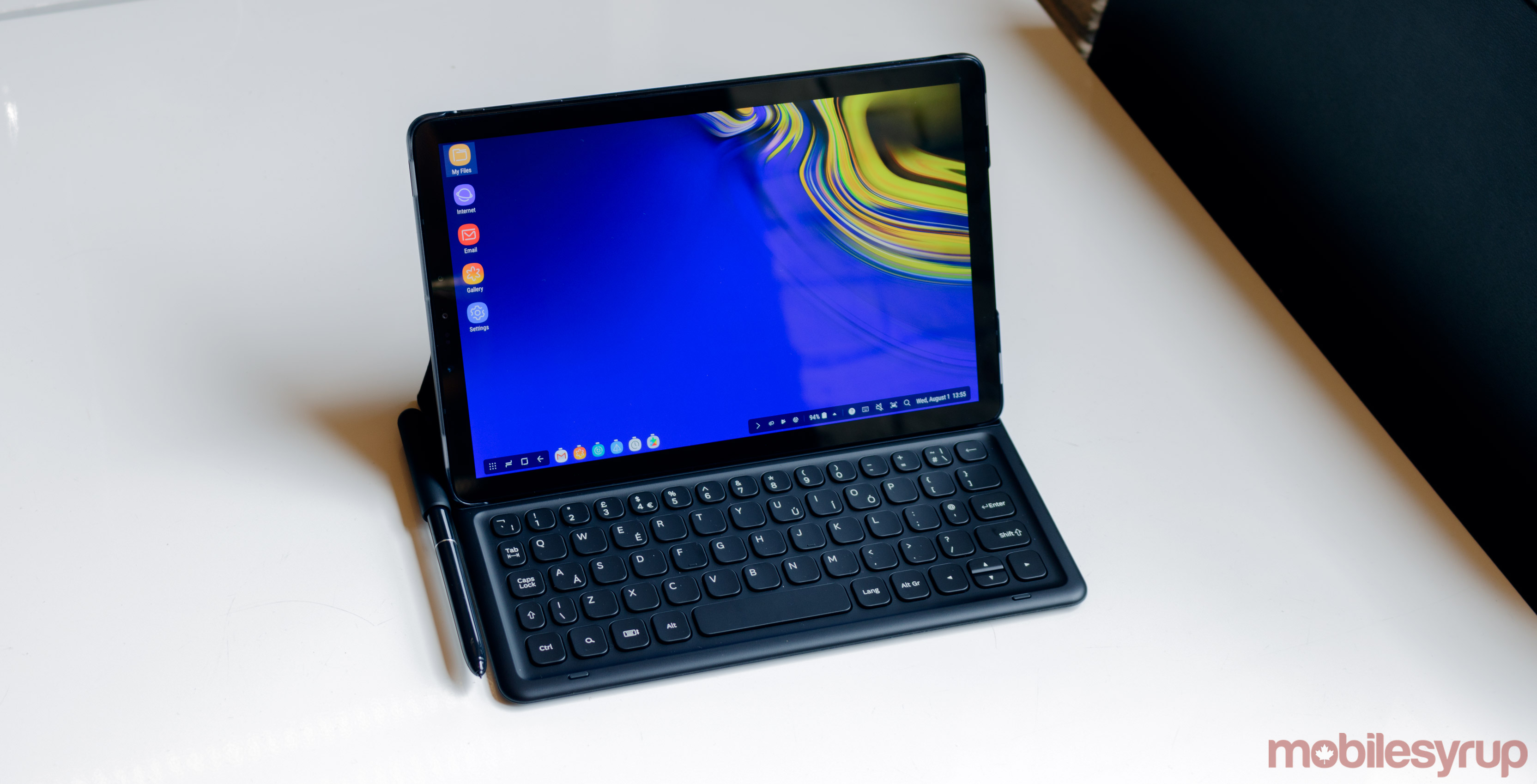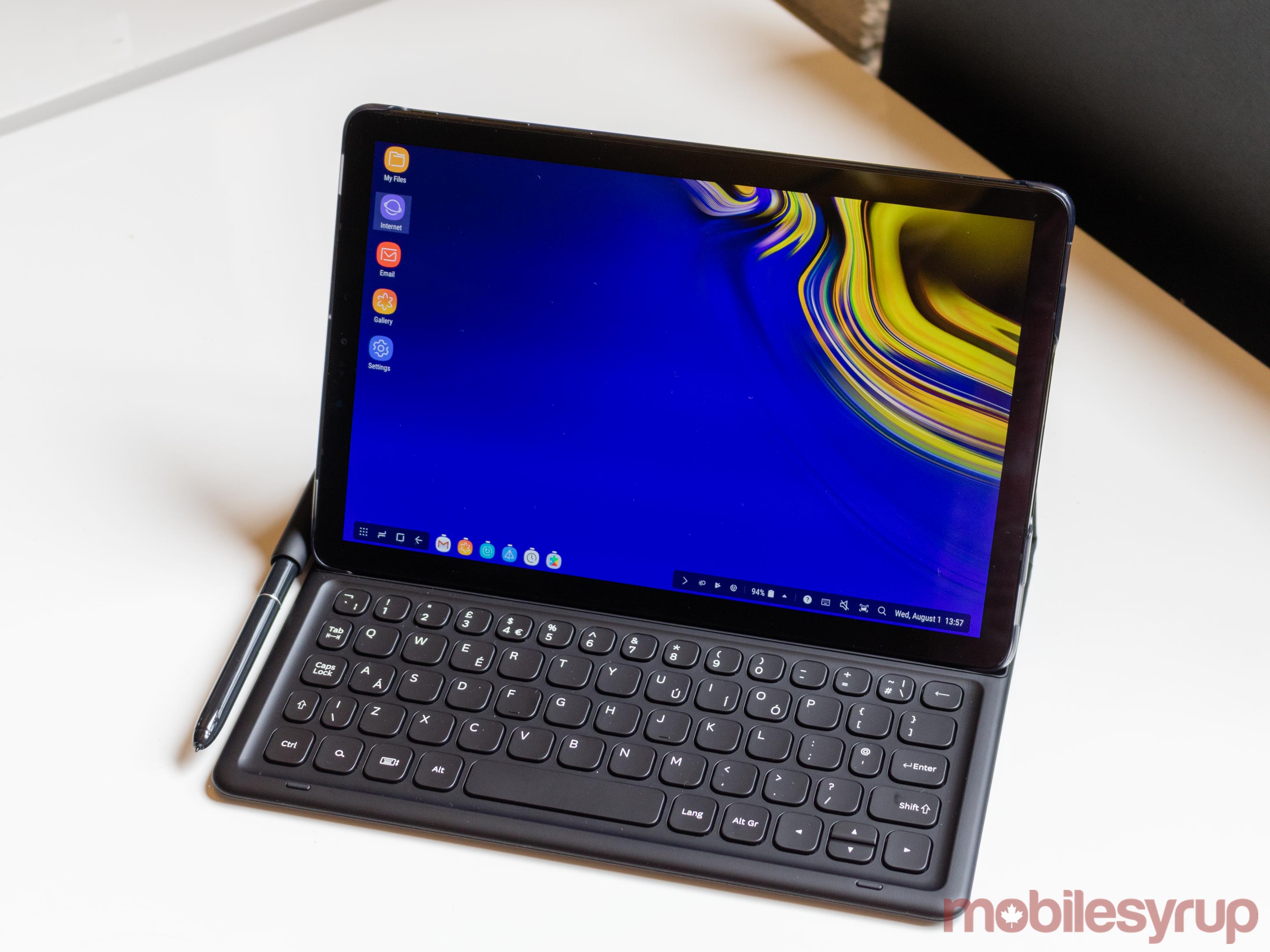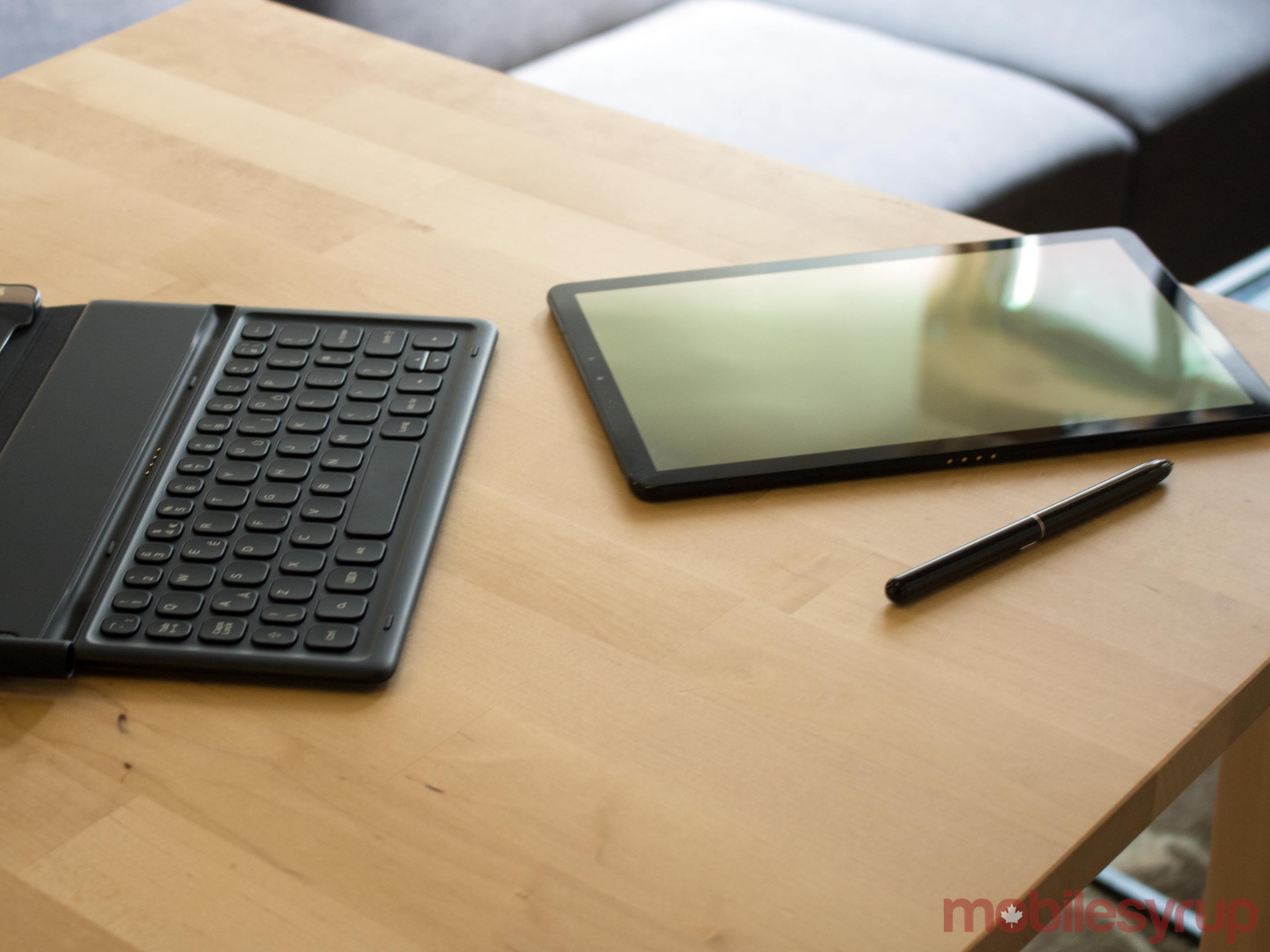
Ever since the emergence of tablets, people have been trying to use them as replacements for their laptops. It’s easy to understand why: Even the thinnest and lightest laptops can weigh more than a similarly sized tablet, and until recently, only a few could be used in tablet mode.
Laptop battery life is often far shorter than that of a tablet, and while both Windows and MacOS are highly capable operating systems, they’re still very much mouse-oriented, making touchscreen navigation tricky, or simply impossible.
Plus, laptops are expensive compared to tablets — why invest in two devices, if you could get by with just one?

But tablets have had drawbacks of their own. Most can’t connect to external storage, or monitors.
On-screen keyboards lack precision, must be summoned and dismissed on a field-by-field basis, and they take up valuable screen real estate when in use. When tablets are used with accessories like Bluetooth keyboards, the lack of a mouse has meant using the touchscreen for navigation — an awkward, unergonomic arrangement.
Most business users agree: Tablets are excellent for content consumption, like reading web pages, or watching videos, but when it comes to content creation, they’re still nowhere near as good as a traditional laptop.
That might be about to change. We’re on the verge of a new era in tablet technology, one that has been hinted at for years, but that’s never quite made it to the mainstream: True laptop-grade productivity in a mobile device. Take exhibit A: Samsung’s Galaxy Tab S4. It’s the first tablet that makes a laptop look like the optional accessory, not the other way ‘round.

On the surface, the Galaxy Tab S4 looks like just another 10-inch Android tablet, but its specs suggest something more. With a 2560×1600 SuperAMOLED display, a Qualcomm Snapdragon 8-core CPU, a USB 3.1 port, and a choice of 64 or 256 GB of storage, we’re already looking at a very fast and capable tablet. But where things start to get interesting, is the addition of Samsung DeX .
With Samsung DeX (and an optional keyboard or mouse) you can recreate a PC-like environment, complete with a task bar, multi-window capability, and familiar features like drag & drop. Samsung DeX automatically renders your favourite apps within this desktop view, and lets you navigate with a mouse instead of your fingers — a big advantage when using a keyboard with a tablet.
Samsung DeX functionality was first available on Samsung’s Galaxy S8 and S8+ smartphones, but these required the optional DeX Station. The Galaxy Tab S4 is the first device to offer a self-contained DeX experience.
Better yet, with an optional HDMI adapter, you can run Samsung DeX on an external monitor. In this configuration, you can use the Galaxy Tab S4 as a primary or secondary screen, or lie it flat and use it as a touch pad, touch keyboard or graphics tablet with the included S-Pen.

Rounding out the business toolset on the Galaxy Tab S4 are the security options. Using the tablet’s front-facing camera, you can unlock the device via iris scanning, which arguably more secure than facial recognition alone.
Samsung’s defense-grade Knox security platform completes the picture, encrypting all of your sensitive files so that only you have access, while giving you the ability to separate your work files from your personal ones.
We put the Galaxy Tab S4 through its paces, and found that it largely delivers on its no-more-laptop promise. We were also pleasantly surprised by how well the Galaxy Tab S4 performs when it’s not helping you get through long Word docs, or Excel spreadsheets.
The HDR screen is a real gem, and the four-speaker, Dolby Atmos-capable sound system gets impressively loud, making the Galaxy Tab S4 a solid companion for those Netflix binge-watching sessions. Heck, with up to 16 hours of video playback on a single charge, you could get through a whole season of Ozark, or Maniac, without ever needing to find a wall outlet.
So welcome to the future — you can finally leave your laptop at home, knowing your tablet has got your back.
MobileSyrup utilizes affiliate partnerships and at times we include these link in our posts. These partnerships do not influence our editorial content, though MobileSyrup may earn a commission on purchases made via these links.
MobileSyrup may earn a commission from purchases made via our links, which helps fund the journalism we provide free on our website. These links do not influence our editorial content. Support us here.


